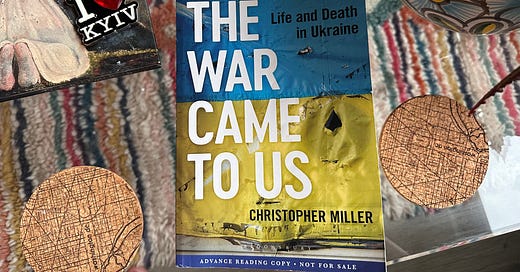The first time I met journalist Christopher Miller in Kyiv, I recognized him as a talented man who carried a weight on his shoulders. That’s because being a Western reporter in Ukraine who also cares about Ukraine can come with a unique set of challenges: You want to report on things honestly and accurately, but people can often misinterpret your effort…
Keep reading with a 7-day free trial
Subscribe to The Normie Restoration to keep reading this post and get 7 days of free access to the full post archives.



